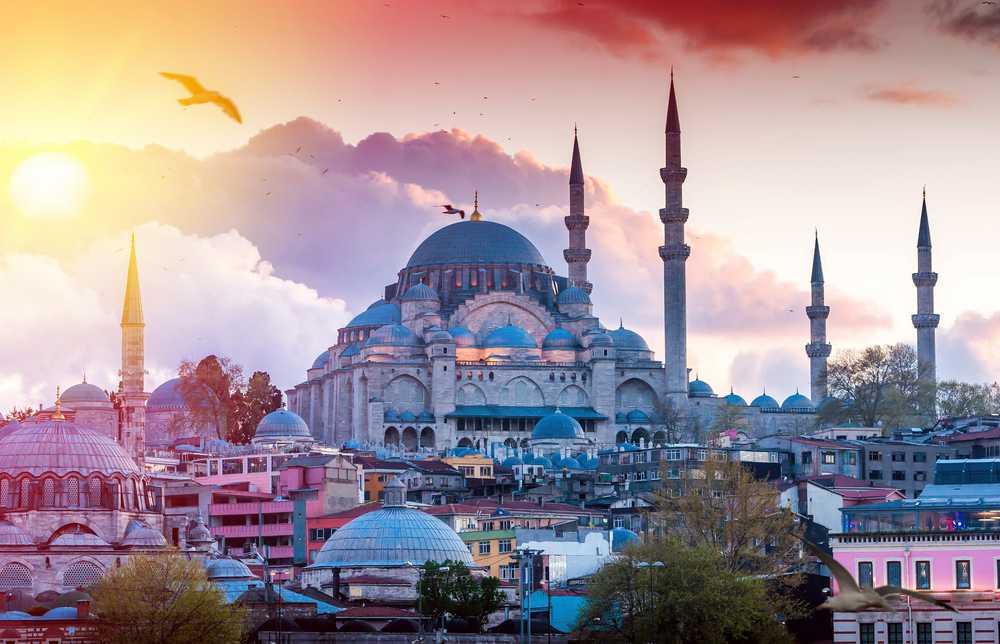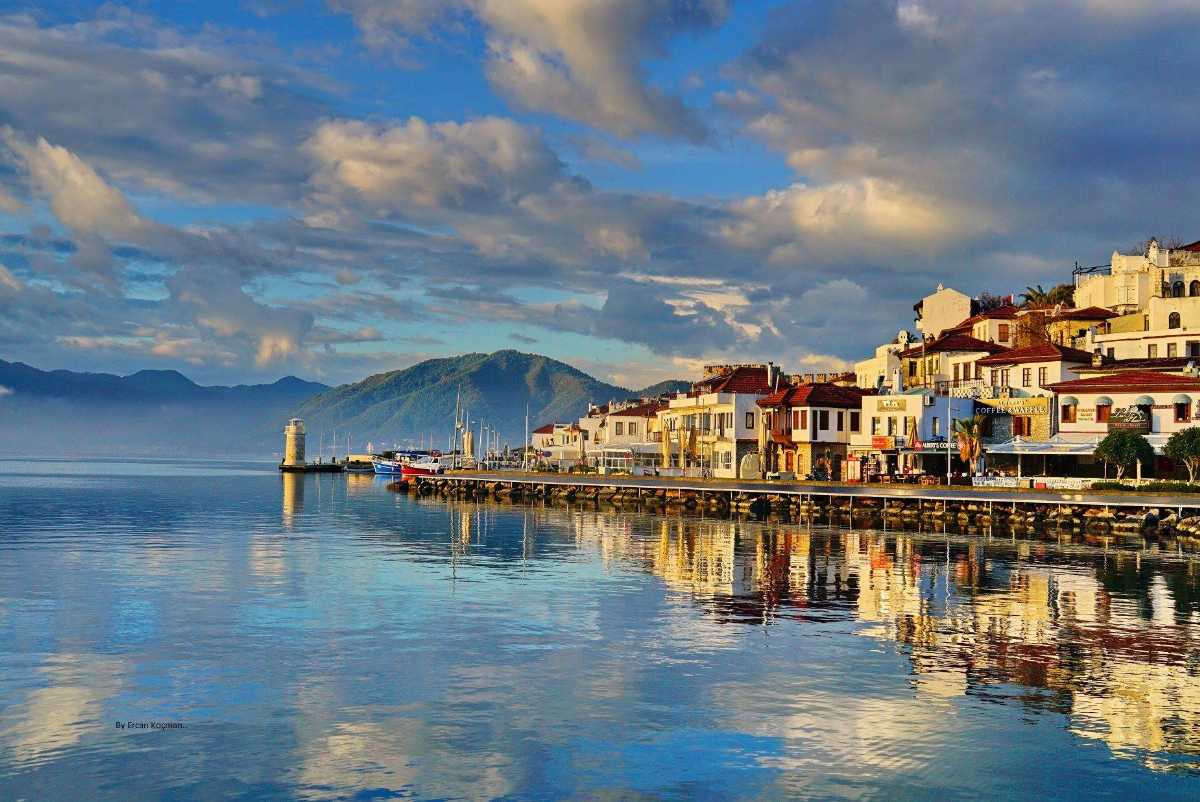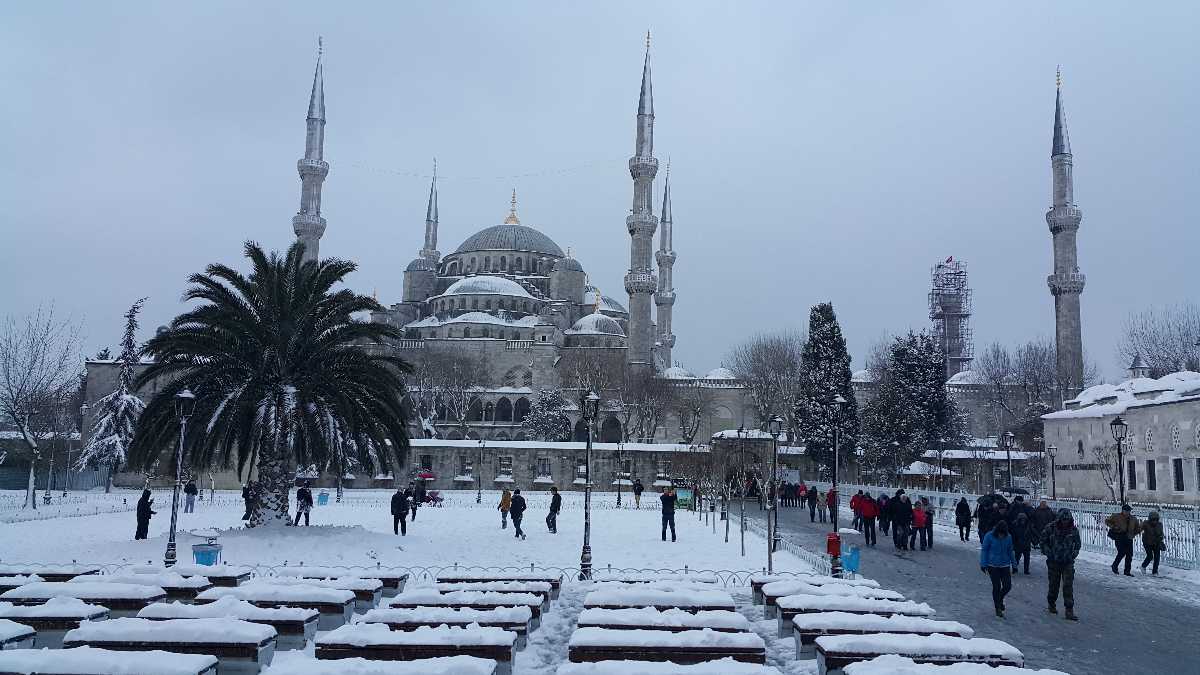In Turkey, a country with diverse cultures and traditions, understanding the dress code for tourists is essential as you explore its varied regions. This guide ensures you are appropriately dressed, considering the Blue Mosque's strict attire rules for beachwear. From the sunny southern beaches to the cosmopolitan cities in the northwest and into the more conservative towns and traditional areas in the east, Turkey offers a mosaic of traditions and trends. This diverse country requires an awareness of cultural differences as you travel, ensuring a respectful and comfortable experience wherever your journey takes you. Here is the complete guide on what to wear in Turkey according to Mosques, regions, and weather.
What to Wear in Mosques and Religious Sites

When visiting mosques and religious sites in Turkey, it's essential to dress modestly. For instance, at the Blue Mosque in Istanbul, both men and women should cover their shoulders and knees, and women should also cover their hair. Most mosques, including the Blue Mosque, provide scarves for visitors who must dress modestly. However, suppose you plan to explore many religious and cultural sites in Turkey. In that case, carrying a small scarf or a pashmina is a good idea, especially if you're a female traveler.
What to Wear on Beaches, Resorts, and Coastal Towns

When enjoying the beaches and resorts in Turkey, tourists can dress casually. Bikinis, flip-flops, swimsuits, shorts, and tank tops are all acceptable attire in these relaxed environments. While it's common to see Turkish beach-goers covered up, it's simply a matter of personal comfort. When transitioning from the beach to bars or restaurants, it's advisable not to wander around in swimwear. As for sunbathing topless, it's a personal choice, and many expat and tourist women find it acceptable, especially in popular destinations like Antalya, Bodrum, and Marmaris. However, it's important to know that this might attract additional attention, particularly from Turkish men. For solo travelers, considering this aspect from a safety perspective is wise.
What to Wear in Cities
1. Izmir
Izmir, a picturesque coastal city 299km south of Istanbul along the Aegean Sea, offers a distinct ambiance. Known for its ancient port and intricate network of souks and alleys, Izmir exudes a unique charm. Despite its different vibe from Istanbul, Izmir maintains a youthful atmosphere because of its significant student population. The dress code in Izmir tends to be more liberal, reflecting the city's dynamic and modern character. The increasing influx of tourists, including those en route to Ephesus and Pamukkale, contributes to the city's diverse and open-minded atmosphere.
2. Ankara and Konya
In Ankara and Konya, people are much more conservative. This conservativeness increases tenfold in the more off-the-beaten-path towns and villages close to the eastern border with Syria and Mount Nemrut. When you arrive somewhere, you will quickly get a feel for the atmosphere, how others are dressed, what you should wear, etc.
3. Istanbul
In Istanbul, similar clothing considerations apply, but it's essential to be mindful, especially in historically significant areas. While Turkey is a secular country with no strict clothing rules, it's respectful to adjust your attire accordingly. When exploring Taksim, you have more freedom in your clothing choices. However, in Sultanahmet, the city's historical heart, it's advisable to avoid very short skirts, shorts, tank tops, and similar clothing. Opting for slightly more modest attire shows respect and helps minimize unwanted attention.
What to Wear During Seasonal Considerations
Understanding Turkey's diverse seasons is crucial for deciding what to wear. The choice of clothing greatly depends on whether you plan to visit during summer or winter. Turkey experiences varying temperatures and climates from east to west. For instance, traveling across the Anatolia plains can be surprising, as you may encounter snow one moment and then find yourself back on dry roads with sunny skies the next.
4. Summer
Summer is the hottest season in Turkey, with temperatures ranging from the mid-thirties to the early forties in degrees Celsius. It's ideal for enjoying Mediterranean-style beach resorts like Bodrum. In cities like Istanbul, Izmir, and Pamukkale, wearing shorts and skirts is acceptable, but solo female travelers might prefer more modest clothing to avoid unnecessary attention.
5. Winter

Winters in Turkey can get very cold, especially in Anatolia and Eastern Turkey, where snow is common. Cappadocia, known for its fairy-tale landscapes, is often covered in soft white snow. Bringing up with scarves, layers, and thick coats is essential to stay warm. In Istanbul, sweaters and lightweight jackets are usually sufficient, but temperatures can still be quite chilly, around 10-15 degrees Celsius.
6. Spring
Spring and Autumn are delightful seasons for travel in Turkey, especially in Central and Western regions, where temperatures range from the mid-teens to the early twenties in degrees Celsius. However, in the eastern part of the country, conditions may still feel wintry. If you're heading to places like Nemrut Mountain in the East, it's advisable to pack coats and layers. For travel in Central and Western Turkey, a light jacket and waterproofs can be handy to navigate varied weather conditions.
Additional Items to be Packed
- Comfortable Shoes: Bring comfortable walking shoes, especially if you plan to explore historical sites or markets with uneven terrain.
- Weather-Appropriate Clothing: Check the weather for the specific season of your visit. Lightweight and breathable fabrics are essential for summer, while a jacket or layers are useful in cooler months.
- Sun Protection: Pack sunscreen, sunglasses, and a wide-brimmed hat to protect yourself from the sun, especially during the summer months.
- Power Adapter: Bring a power adapter to charge your electronic devices. Turkey uses the Type C and Type F electrical outlets.
- Travel Essentials: Don't forget essential travel items like a reusable water bottle, travel-sized toiletries, and a compact umbrella.
- Daypack: A small daypack can carry essentials during day trips or explorations.
- Documents and Currency: Ensure you have a copy of important documents like your passport and any required visas. Also, have some local currency (Turkish Lira) for small purchases.
- Medical Kit: Pack a basic medical kit with essentials like pain relievers, any prescribed medications, and basic first aid items.
